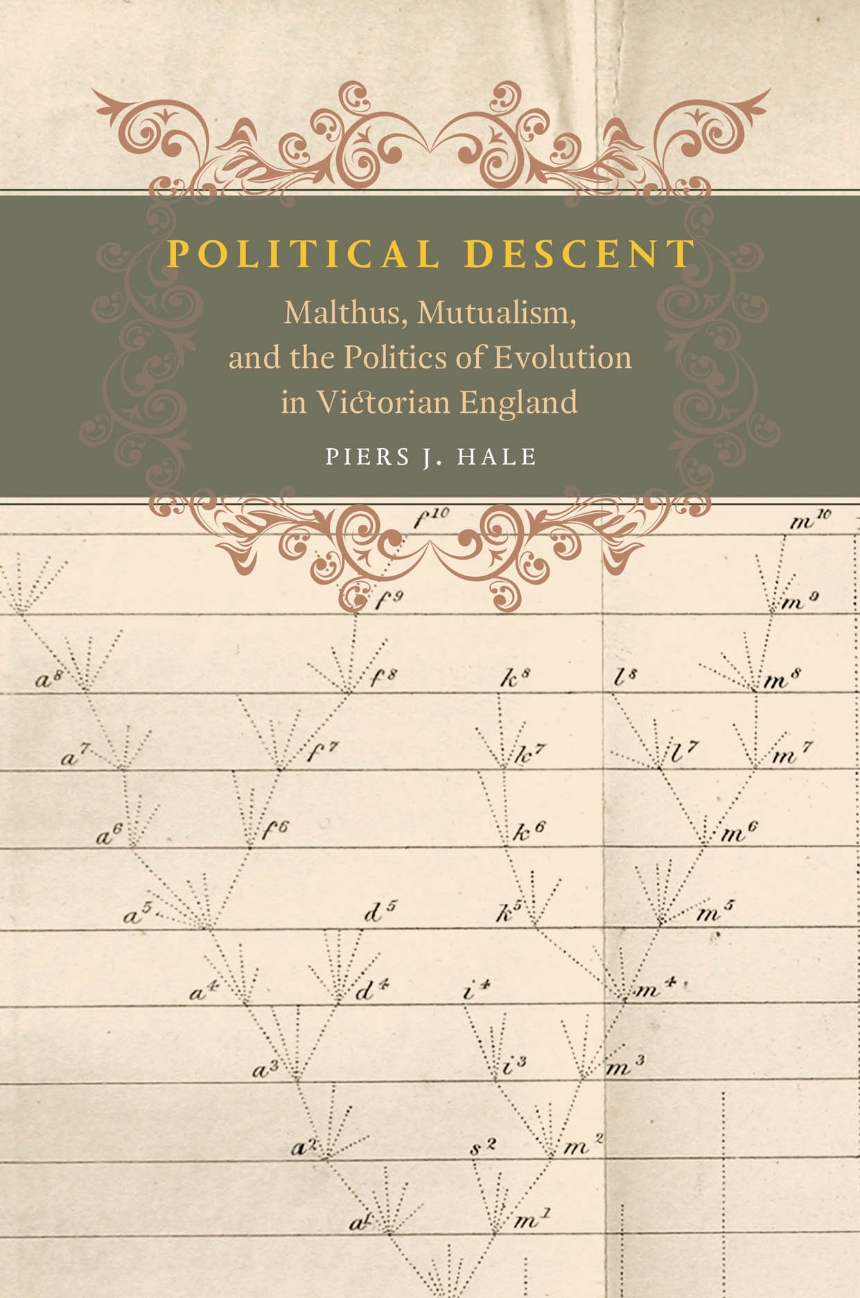Political Descent
Malthus, Mutualism, and the Politics of Evolution in Victorian England
Political Descent
Malthus, Mutualism, and the Politics of Evolution in Victorian England
These two traditions, Hale shows, developed in a context of mutual hostility, debate, and refutation. Participants disagreed not only about evolutionary processes but also on broader questions regarding the kind of creature our evolution had made us and in what kind of society we ought therefore to live. Significantly, and in spite of Darwin’s acknowledgement that natural selection was “the doctrine of Malthus, applied to the whole animal and vegetable kingdoms,” both sides of the debate claimed to be the more correctly “Darwinian.” By exploring the full spectrum of scientific and political issues at stake, Political Descent offers a novel approach to the relationship between evolution and political thought in the Victorian and Edwardian eras.
464 pages | 17 halftones | 6 x 9 | © 2014
Biological Sciences: Evolutionary Biology
History: History of Ideas
Reviews
Table of Contents
Introduction: The Politics of Evolution
1 Every Cheating Tradesman: The Political Economy of Natural Selection
2 A Very Social Darwinist: Herbert Spencer’s Lamarckian Radicalism
3 A Liberal Descent: Charles Darwin and the Evolution of Ethics
4 Liberals and Socialists: The Politics of Evolution in Victorian England
5 Malthus or Mutualism?: Huxley, Kropotkin, and the Moral Meaning of Darwinism
6 Of Mice and Men: Malthus, Weismann, and the Future of Socialism
7 Fear of Falling: Evolutionary Degeneration and the Politics of Panmixia
Conclusion: Political Descent: Anticipations of the Twentieth Century and Beyond
Afterword: Engaging the Present
Acknowledgments
Notes
Bibliography
Index
